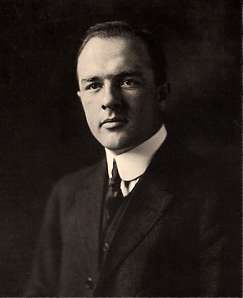A Quote by H. Richard Niebuhr
Everyone has some kind of philosophy, some general worldview, which to men of other views will seem mythological.
Related Quotes
Philosophy is not a body of knowledge to impart to someone, that's why reading philosophy books isn't always the best way of learning philosophy. Philosophy is really more the process of rational engagement, rational reflection with a diversity of views and ideas and opinions and trying to sort of reason your way through to a more reflective position. I think if you look at it that way, philosophizing is to some extent some small way a part of almost everyone's lives although they don't recognize it as such and a lot of people are embarrassed about it.
In the weakness of one kind of authority, and in the fluctuation of all, the officers of an army will remain for some time mutinous and full of faction, until some popular general, who understands the art of conciliating the soldiery, and who possesses the true spirit of command, shall draw the eyes of all men upon himself. Armies will obey him on his personal account. There is no other way of securing military obedience in this state of things.
I worked out a book which I thought was just straight science fiction -- with everything pretty much explained, and suddenly I got an idea which I thought was kind of neat for working in a mythological angle. I'm really struggling with myself. It would probably be a better book if I include it, but on the other hand I don't always like to keep reverting to it. I think what I'm going to do is vary my output, do some straight science fiction and some straight fantasy that doesn't involve mythology, and composites.
Every community is an association of some kind and every community is established with a view to some good; for everyone always acts in order to obtain that which they think good. But, if all communities aim at some good, the state or political community, which is the highest of all, and which embraces all the rest, aims at good in a greater degree than any other, and at the highest good.
We live in a day when the adversary stresses on every hand the philosophy of instant gratification. We seem to demand instant everything, including instant solutions to our problems. . .It was meant to be that life would be a challenge. To suffer some anxiety, some depression, some disappointment, even some failure is normal.
Men in general are too material and do not make enough human contacts. If we search for the fundamentals which actually motivate us we will find that they come under four headings: love, money, adventure and religion. It is to some of them that we always owe that big urge which pushes us onward. Men who crush these impulses and settle down to everyday routine are bound to sink into mediocrity. No man is a complete unit of himself; he needs the contact, the stimulus and the driving power which is generated by his contact with other men, their ideas, and constantly changing scenes.
People do this a lot. They don't seem to realise that the future is just like now, but in a little while, so they say they're going to do things in anticipation of some kind of seismic shift in their worldview that never actually materializes. But everything's not going to be made of leather, the world won't stink of sherbet. Tomorrow is not some mythical kingdom where you'll grow butterfly wings and be able to talk to animals -- you'll basically feel pretty much the same way you do at the moment.































